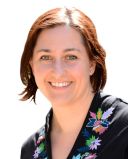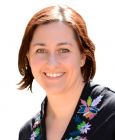Education
Why Is Interdisciplinary Science So Important?
Combining scientific disciplines can lead to amazing results.
Posted January 15, 2020
Lately, I have been thinking about how important collaboration and interdisciplinary science is. I have had two incredible experiences that would have been impossible without going a bit outside of my scientific comfort zone. I wanted to share them below.
First off, when I was newly hired at UC Riverside, I wanted to make a new undergraduate course. My goal was to find a way to integrate my areas of expertise (clinical psychology, differential diagnosis, autism, neuroscience) with the topics of greatest interest to the graduate school of education (special education, classroom interventions, school psychology). I ended up developing a course called, "Abnormal Psychology for Educators." The course reviews disorders that might be given by a clinical psychologist (e.g. social anxiety disorder, specific phobia, major depressive disorder), and also how a student with that disorder would be handled in the classroom/school environment. To illustrate what this looks like, I will use the example of social anxiety disorder (SAD), and how I would cover this topic in the course:
I would spend time defining the diagnostic criteria for SAD according to the Diagnostic and Statistical Manual, Fifth Education (DSM-5). We would discuss all of the diagnostic criteria (e.g. what symptoms someone must have in order to be diagnosed with SAD). I would discuss how a clinical psychologist would arrive at this diagnosis (e.g. interviewing the child or teen and parents, gathering information about developmental history, etc). I also review how to differentiate similar diagnoses from one another. For example, social anxiety can sometimes look like autism spectrum disorder, as both often involve lack of social initiations, minimal eye contact, etc.
I would then switch gears and talk about how a child with SAD would be treated in the classroom and in school. For example, it is important to note that there is no such special education category as, "social anxiety". Rather, students with any anxiety disorder who receive special education are labeled as having "emotional disturbance".
Further, simply because a child has a diagnosis of SAD does not guarantee that he or she will receive special education services. In order to receive special education services, a child's condition must interfere with their ability to access the educational environment. Therefore, some students who have a diagnosis of SAD are not eligible for special education services. If indeed a student's condition is interfering with their ability to access the educational environment, then that student would be eligible for special education services and would likely be given an Individualized Education Plan (IEP).
An IEP outlines what accommodations and services a given student receives, and is 100% individualized for each student who has one. We would then end by considering what accommodations might be helpful for a student with SAD. For example, such a student might receive counseling/therapy in school, might be part of a social skills group to improve his or her ability to make friends, or might be able to do an alternative assignment — such as a paper —in lieu of an oral presentation (if the student's social anxiety made it impossible for him or her to give such a presentation without experiencing severe and debilitating distress).
Though I was initially nervous to combine school psychology/special education with clinical psychology material, I found that students appear to benefit a great deal from the multidisciplinary approach. Because this class is unique in focus, I edited a textbook specifically for this course (and courses that cover similar topics).
Secondly, in my second year at UC Riverside, I realized that my lab's approach of using neuroscience to better understand autism spectrum disorder (ASD) was unusual in a school of education. I recognized the necessity of recruiting students with interests in both neuroscience and special education/school psychology (e.g. students who are passionate about using neuroscience in order to understand and assist students with special needs). I learned that some Universities offer programs in exactly this topic through Master's programs in Neuroscience and Education. This seemed like an ideal way to identify students who might be a good fit for my lab. However, I quickly realized that there are very few of these programs in the USA (though there are more in the UK).
It dawned on me that if I wanted to attract students with this type of background and pattern of interests, it would be necessary to create such a program here at UC Riverside. If it weren't for interdisciplinary cooperation between multiple departments (e.g. Psychology, Neuroscience, Education), these types of program would not be possible. Students in the UCR program take courses in all three subject areas from a variety of internationally recognized faculty. These types of programs are especially important for students who have interests in more than one topic area, or who want to learn more about how they might be able to "merge" these topics as part of their career.
I have spoken to students who are attracted to the interdisciplinary program because they want to be involved in education in the future but also want to have a firm grasp of brain development and neuroscience to help them better serve their future students. I have spoken to others who like the program as a stepping stone to a Ph.D. program because they are trying to decide between applying to programs in Clinical Psychology, Developmental Psychology, Neuroscience, and Education. We are in the inaugural year of the M.A. program and hope to continue growing as the trend towards interdisciplinary work increases.
I am thrilled that there is an increased interest in interdisciplinary programs in academia. None of us can accomplish important science alone, and working with colleagues is the best way to solve complex problems and answer hard questions. Collaboration is a cornerstone of science, and including different perspectives in course work and graduate programs will make the next generation of scientists even stronger.
References
Stavropoulos, K.K.M (Ed.). (2020). Abnormal Psychology for Educators. San Diego, CA: Cognella




